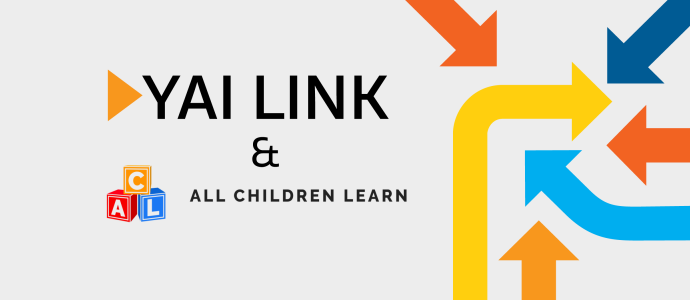Early intervention (EI) services can positively influence a child's developmental path and improve outcomes, empowering families to help their children reach their true potential.
At the onset of the pandemic in March 2020, New York City saw a steep decline in the number of children participating in the EI program. According to Advocates for Children of New York, in the four-week period beginning March 22, an average of 135 children were referred to EI each week, an 82% decline from the year earlier, when there were an average 748 referrals per week. Absent an EI program, that means as many as 6,000 children in the City were not identified as potentially having developmental delays or disabilities in the first weeks of the pandemic alone.
Caregivers of children with intellectual and developmental disabilities (I/DD) must navigate cumbersome systems to get the help they need. But confusion has only been compounded since March 2020. Frustrations of not having the information readily available become a huge roadblock for those looking for guidance. YAI recently partnered with All Children Learn (ACL), a web-based database that simplifies searching for special education by disabilities and methodologies. It is a free platform with advanced search technology that allows parents to connect with schools, healthcare providers, and advocates, among others. ACL provides benefits for both sides; experts looking to be found and parents seeking their services.
“Advocating for children and winning services isn’t the challenge. The real challenge is you can’t find the right school or provider that serves that child,” said John Boyle, CEO of ACL. “What we’ve done is created an ecosystem where parents can come search on our platform and doctors can index themselves to the specific needs because there is so much demand for it.”
Boyle created the platform during the pandemic and officially launched in January 2021. Currently, a network of more than 1,000 doctors and providers are cataloged in the ACL database.
YAI’s partnership with ACL provides the extra layer of expertise to caregivers. Through the LINK department, which offers information and referral resources for YAI and its affiliates, YAI will assist ACL with inquiries that come in every month.
“Our partnership will help families who are having trouble using the site and who are too lost to use the database,” said Caroline Dunn, Director of LINK. “The inquirers will get hands-on help like talking to an actual specialist in the I/DD field to get them on the right path.”
For more than 30 years, YAI’s LINK department has provided invaluable information, options, and access to the I/DD field. It assists with about 1,000 monthly inquiries on average and is available for community fairs, conferences, and speaking engagements to support families and help determine state eligibility for services.
The new partnership hopes to also leverage YAI’s bilingual service capacity to reach Spanish speakers. The organization is committed to ensuring the communities are supported year-round and offers a variety of resources, including bilingual support groups, conferences, and workshops. The language expertise will allow YAI to simplify the copious amount of information available to overwhelmed families who just need some direction. One way LINK is tackling this challenge is by busting some frequent myths surrounding OPWDD eligibilities.
“One of the biggest myths we get is in order to get OPWDD eligibility, you have to have an intellectual disability and that’s false,” said Dunn. “You have to have substantial functional deficits, but you don’t have to have an intellectual disability...and that’s part of the education, busting myths like these.”
The collaboration will also allow YAI, known for making referrals beyond its network, to reach a younger group earlier in their EI journey. One of the main challenges includes families who don’t know of YAI and the services it provides and them finding the nonprofit later in life, sometimes even in their 50s or 60s.
“As research has found, the earlier on you do an intervention the more likely it is to change the outcome,” said Dunn. “It gets harder to connect to services once you get older—just the amount of paperwork you have to submit can be harder. ACL is really serving school children and getting YAI on the radar of families using this service is really important to get them to the right place.”
Boyle added the new undertaking will help foster better relationships between parents and experts in the field.
“We are aiming to show parents there are amazing schools and providers that really care and want to help their children,” said Boyle. “This can help spread the word for parents that there are things school districts can do, like implement our technology, which will help serve special needs students in a meaningful way."

